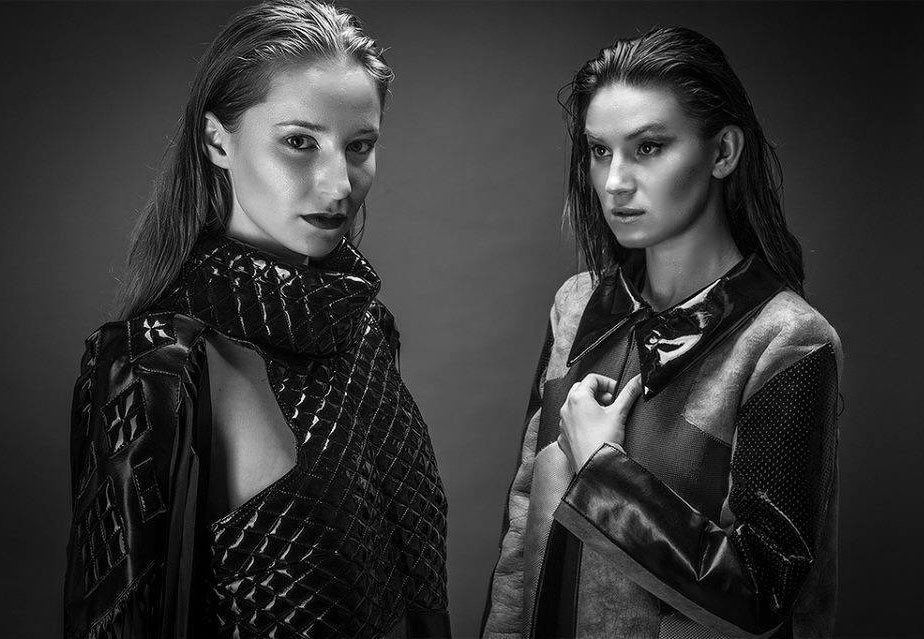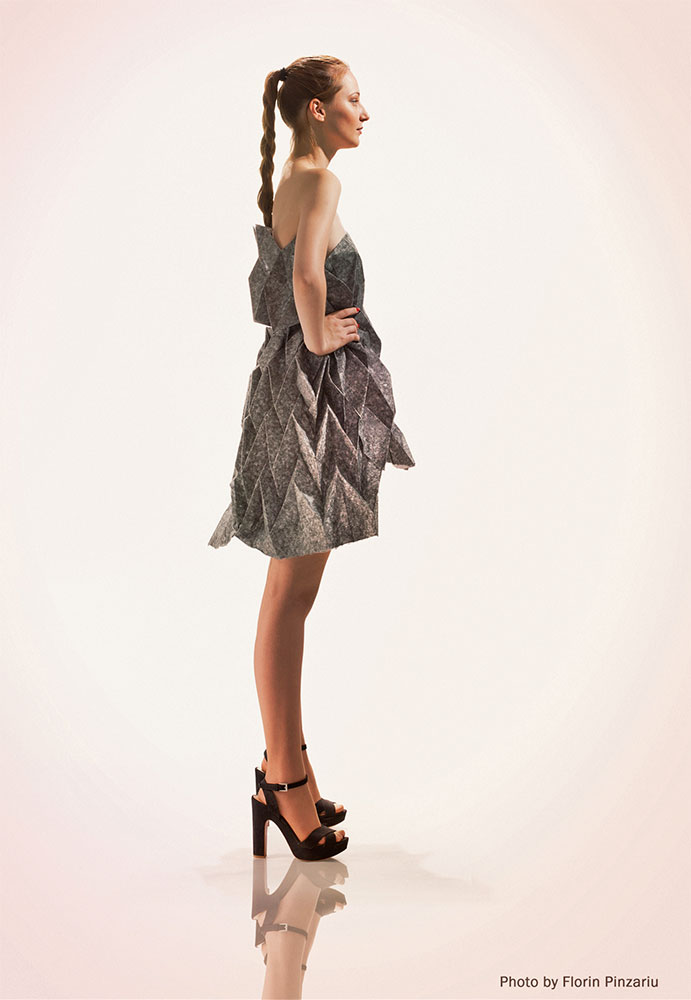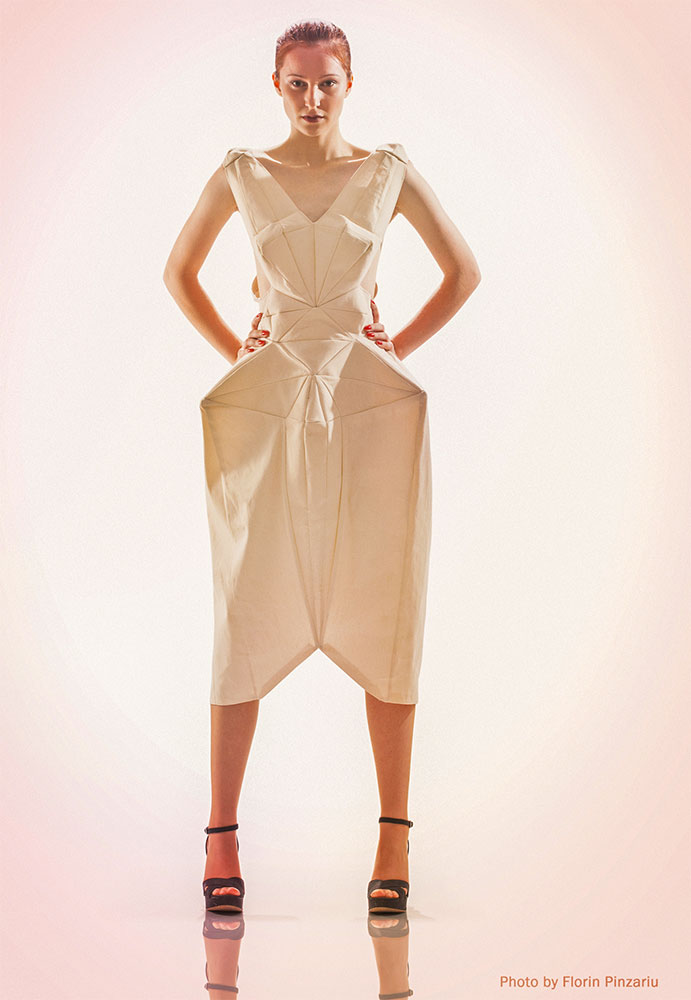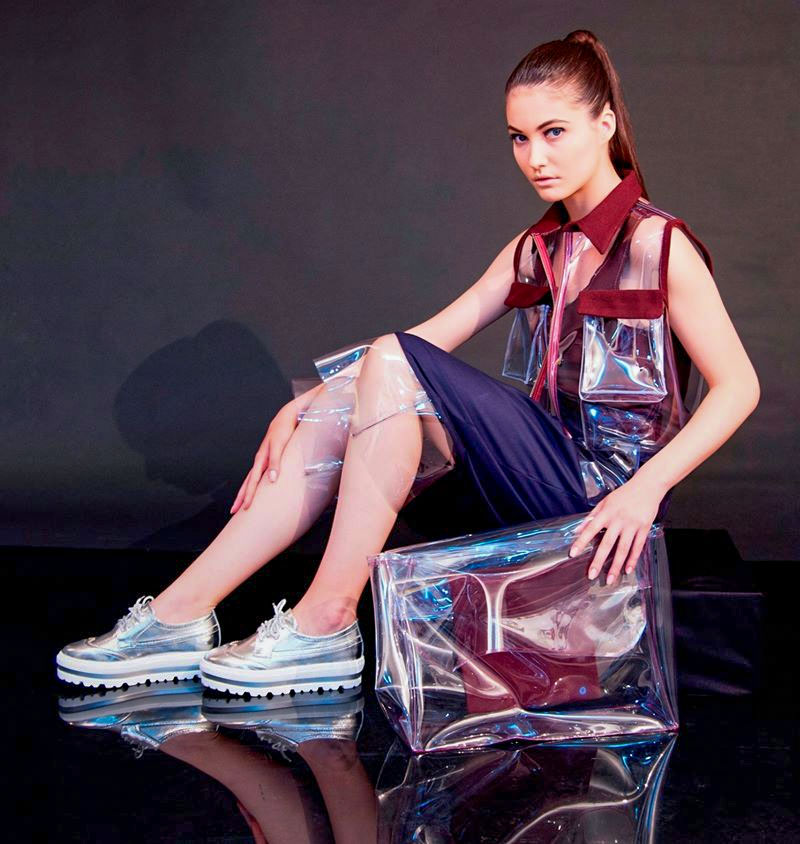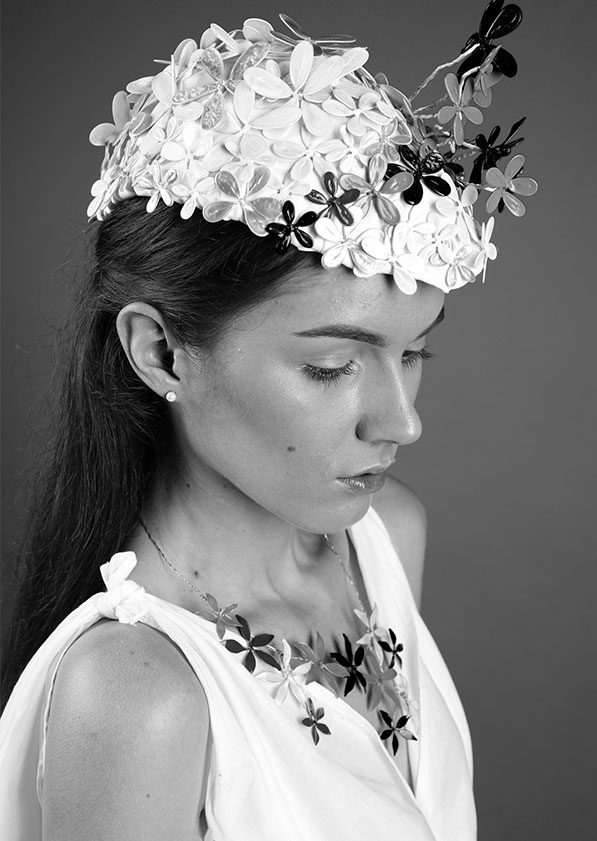 The study program provides the necessary educational framework for the development of creative and practical abilities, useful for professing in the fashion industry, combining within the studied disciplines and approached projects artistic and technical aspects.
The study program provides the necessary educational framework for the development of creative and practical abilities, useful for professing in the fashion industry, combining within the studied disciplines and approached projects artistic and technical aspects.
The applied educational principle encourages freedom of creation and innovative thinking by exploring new ideas and concepts in fashion design.
Graduates may continue to fathom their knowledge taking up MA studies, Fashion Design specialization, or doctoral studies.
The proper training, offered in key with European standards, allows students to enroll in inter university mobility programs. Moreover, students also have the opportunity to participate in various events in the field (fashion shows, fairs, and exhibitions).
The graduates of the Fashion specialization have various career opportunities.
Facebook: Moda Unage
FUNDAMENTAL DISCIPLINES: Art history | Artistic anatomy | Computer image processing | Perspective, descriptive geometry | Aesthetics of visual arts.
Disciplines specific to visual arts field: The basics of drawing | Color study | The basics of two- and three-dimensional composition | History of clothing | Fashion illustration | Fashion trends forecasts | Creating fashion accessories.
Specialized disciplines: Creation clothing | Clothing construction and modeling | The concept of collection | Computer aided design | Specialized practice.
Optional specialized disciplines: Materials, processes, applied textile techniques | Applied textile techniques | Constructed textiles | General textile technology | Fashion system.
Complementary disciplines: English language | Marketing and management | Physical Education
During the study years, students learn:
- to sketch human silhouettes and attires;
- to use/apply theories, historical perspectives, design elements and principles in the creative process;
- to design clothing collections for both global and local market;
- to select/identify and use appropriate clothing construction and modeling techniques, in order to design prototypes (for their own projects/collections).
The department has its own laboratories, endowed with machineries, installations and equipment necessary for carrying out practical works and semester research.
